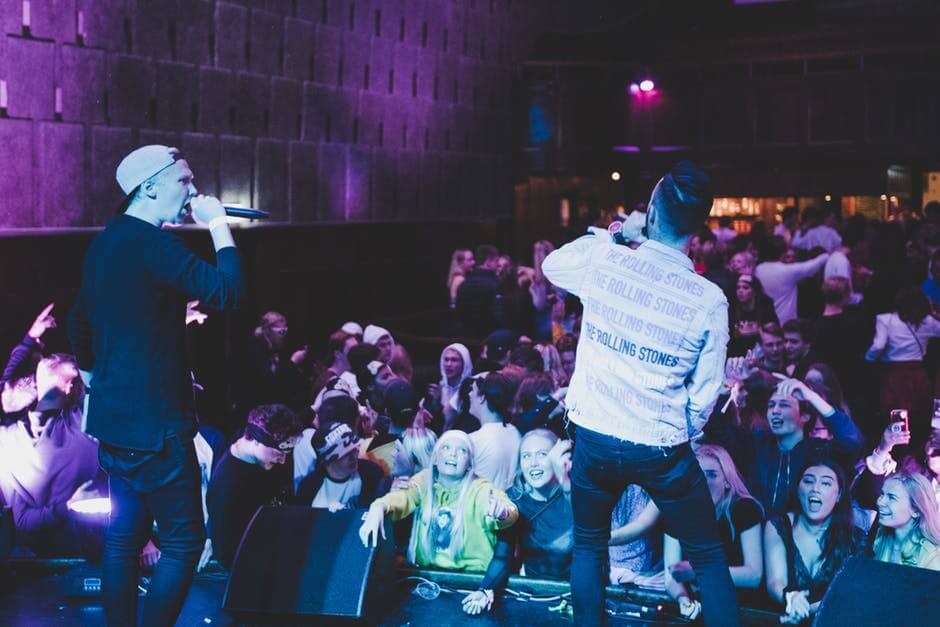Crypto
Here’s how blockchain can disrupt the creative industry
Thanks to Ink Labs Foundation, professionals in the creative industry will now have another platform to get paid and avail of intellectual property protection via INK token.

Removing the middleman is a common theme in blockchain and crypto initiatives. So picture a world where a content creator can exchange his masterpiece for fair value without a third party being involved. That’s the vision the team at Ink Labs Foundation has to transform the global creative industry.
Writers, singers, artists, designers and other content creators face age-old problems when it comes to managing and getting paid for their intellectual property. Unclear ownership of one’s works often leads to costly disputes. Inadequate data authenticity can lead to an unfair distribution of proceeds. Centralized governance means inferior works can get marketed as premium content and also results in an unfair allocation of recourses.
There’s also a need to convert original works into liquid assets. And generally, there’s a lack of an ecosystem and infrastructure in the creative industry.

Recording artists can now turn to blockchain technology for intellectual property management. (Source)
Blockchain clarifies ownership
So how can blockchain help content creators? Ink’s consortium blockchain helps users better manage their intellectual property through the use of digital certificates, user identification and permission control. The consortium blockchain can also control different entities’ access level of data and resources.
Singapore-based Ink launched a successful token sale in November to solve these problems. The INK token is available on several crypto exchanges including EXX, Allcoin, BigONE, Gate.io, Coinegg, Lbank, Coinnest, ZB and more.
IP management may sound like a simple problem, but it leads to frequent disputes, litigation and loss of revenue for artists, writers, vloggers and other content producers. Works are often copied, republished without permission, plagiarized and stolen, with revenue siphoned off to shady groups. Identification and access protocols can lead to clarity as to who owns the content. When ownership is clear, content creators can properly get paid for their works.
Decentralized infrastructure
In centralized arrangements, it can be unclear as to who actually owns the content. This leads to intellectual property disagreements between producers, government regulators and intermediaries. When you don’t have proper procedures in the front-end, it can be very expensive on the back-end when lawyers litigate in the courtroom.
Ink’s consortium blockchain has designed and implemented an account system that can cater to a large number of anonymous users to manage digital assets and interact directly with the consortium blockchain. If your livelihood is songwriting, it’s key to maximize your earnings and earn a decent return for your efforts. Knowing you control your works gives confidence that you’ll be rewarded, and therefore boost your productivity — potentially increasing your income even more.
A top-down, centralized marketplace often rewards big institutional players and removes leverage from talented individuals. A lack of leverage becomes a disadvantage at the negotiating table. Just look at famous artists who ended up broke because they got strong-armed into signing bad deals that took away lucrative royalties on the back-end. But if there’s an auction/bidding environment with multiple interested parties, content creators can walk away from bad deals or unethical groups and monetize their work with the best possible partner.
Asset exchange for artists
The Ink team views itself as the Qtum of the creative industry. A Qtum-based Intellectual Property Asset Exchange enables content creators to trade their work for fair value. Think of it as facilitating the securitization of intellectual property, turning creative work into tradeable, liquid assets. While the platform can serve users who participate in small projects, the scaling capabilities can allow for bigger transactions.
“The content can be converted to liquid assets and the content creator can receive the proceeds at an earlier stage,” says a spokesman. “With broad investment from the public, high-quality content can stand out more easily. Moreover, funds and digital assets will be better integrated. It is more conducive for long-term and diversified commercialization.”
—
DISCLAIMER: This article expresses my own ideas and opinions. Any information I have shared are from sources that I believe to be reliable and accurate. I did not receive any financial compensation in writing this post, nor do I own any shares in any company I’ve mentioned. I encourage any reader to do their own diligent research first before making any investment decisions.
(Featured image via DepositPhotos)

-

 Business1 week ago
Business1 week agoDow Jones Near Record Highs Amid Bullish Momentum and Bearish Long-Term Fears
-

 Business2 weeks ago
Business2 weeks agoDow Jones Breaks 50,000 as Bull Market Surges Amid Caution and Volatility
-

 Crowdfunding5 days ago
Crowdfunding5 days agoThe Youth Program at Enzian Shooting Club Is Expanding Thanks to Crowdfunding
-

 Impact Investing2 weeks ago
Impact Investing2 weeks agoEU Backs 90% Emissions Cut by 2040 and Delays ETS2 Rollout
























You must be logged in to post a comment Login